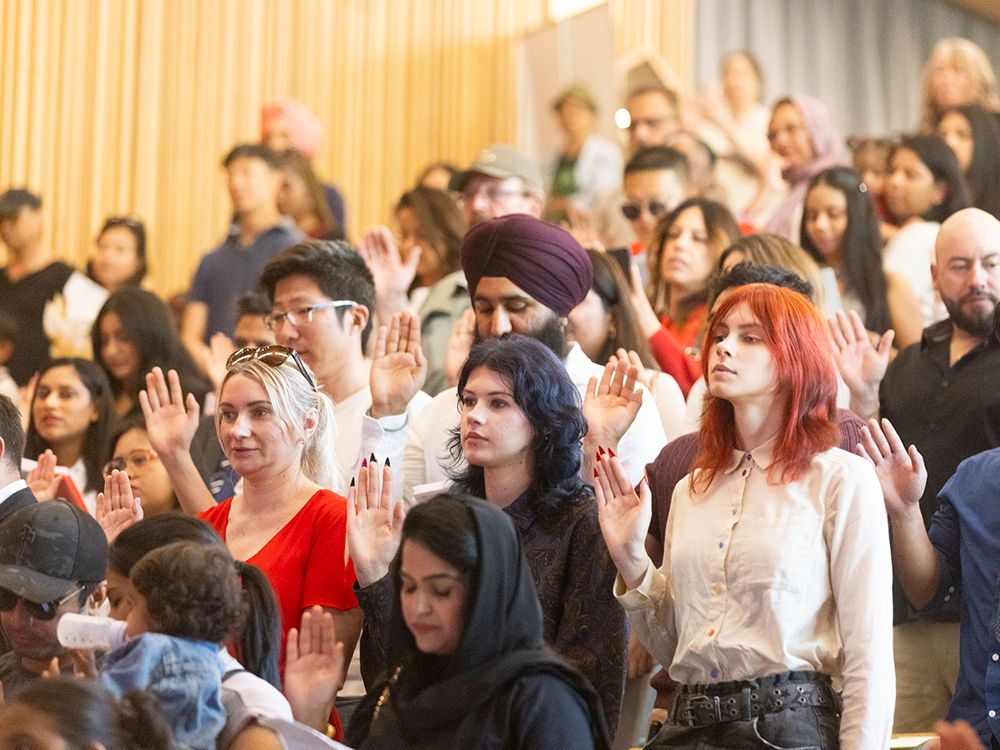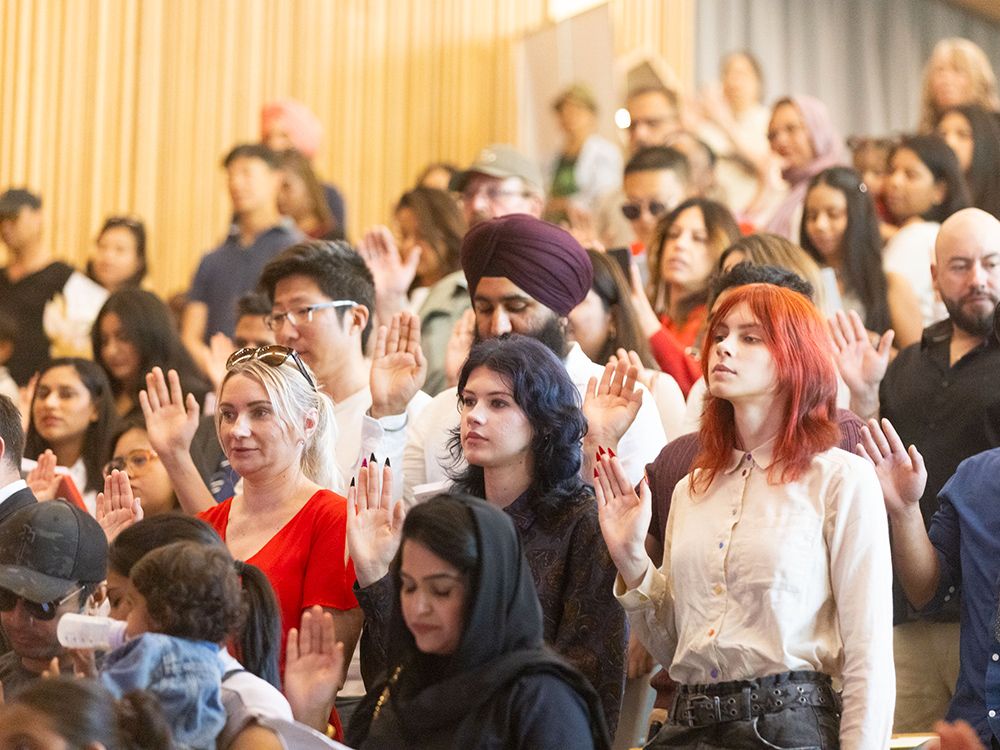
Most Canadians believe the country is admitting too many immigrants and many do not trust the newcomers, new polling shows.
The national Leger poll conducted for the Association for Canadian Studies and the Metropolis Institute found that 62 per cent of people think that the country is currently admitting too many immigrants. That’s an increase of four percentage points since pollsters last asked the question in March 2025, and more than double the number of people who felt that way six years ago. In the most recent poll, only 20 per cent disagreed and 19 per cent said they don’t know.
The poll also asked Canadians if they think immigrants can be trusted. Only 42 per cent of Canadians said immigrants can be trusted and that number drops to 36 per cent when it comes to refugees. The poll found that 20 per cent of respondents think immigrants cannot be trusted and 23 per cent said refugees cannot be trusted.
“While most observers attribute the persistent concern with the numbers of refugees to economic concerns and housing challenges, the survey looks at the extent to which Canadians trust immigrants and refugees and finds that amongst those Canadians who feel that there are too many immigrants, the level of trust in refugees is especially low,” says an analysis published alongside the poll. It found that of the people who think there are too many people coming to Canada, only 32 per cent trust immigrants, while 28 per cent said they can’t be trusted. Only 24 per cent trust refugees, while 32 per cent said they cannot be trusted.
“This may imply that concerns over domestic intergroup tensions may be a more important factor in concern with levels than has been previously acknowledged,” the analysis says.
Jack Jedwab, president and CEO of the Association for Canadian Studies and the Metropolis Institute, said that he wanted to investigate what is driving the pushback on immigration levels, besides economic and housing concerns.
“We’re trying to probe here whether Canadians do have security concerns that are also driving some of the reticence or hesitation about immigration right now. My conclusion is that that is the case,” said Jedwab. “The point of the survey is, there is an issue that we need to pay attention to. If there is a security concern associated with migration right now, it requires some attention and a need to reassure Canadians that our government and the responsible departments are taking care of those issues, are paying attention to those issues if and when they arrive, or where and when they may arise.”
The poll found that 57 per cent of immigrants also agree that there are too many immigrants, while 60 per cent of non-immigrants feel that way. Non-white people surveyed feel the strongest, with 61 per cent agreeing that there are too many immigrants, compared to 58 per cent of white people.
“That polarization is not based on whether you are yourself an immigrant or you are a minority, it’s not. It’s transcending that,” said Jedwab. “So the trust issue is a critical factor. It’s just not defined by, as I said, your status as an immigrant or non-immigrant or as a minority. Those groups of people are making observations to the same extent across those markers of identity.”
Refugees are more likely to be trusted by non-immigrants (38 per cent) than immigrants (33 per cent). White people are also more likely to trust refugees (37 per cent) than non-white people (33 per cent). They are most likely to not be trusted by non-white people (28 per cent) compared to 22 per cent of white people, 22 per cent of immigrants and 23 per cent of non-immigrants. Immigrants, however, are more likely to be trusted by other immigrants and non-white people (both at 53 per cent) than by non-immigrants and white people (40 per cent for each).
“The actual trust issues seem to be really one that transcends those categories. It’s not polarized in the way some people envision it to be polarized. It’s a lot more complex than that,” said Jedwab.
“We’re seeing the degree of trust expressed in refugees as especially low. And particularly amongst those people who think there are too many immigrants, the trust of refugees is low, lower than it is normally.”
The view that there are too many immigrants entering Canada has been constantly held by at least half of Canadians since February 2024, when 50 per cent of those polled expressed that view. Even then, that was an unusually high figure. In March 2019, just 35 per cent of those polled said there were too many immigrants coming to Canada.
“Whether you’re born in Canada or not born in Canada, or whether you’re a minority or not, this issue around trust, and the perceptions around the global instability, is affecting our perspectives around migration.” said Jedwab.
Across all age groups, the majority of people feel that there are too many immigrants coming into the country, but young people are less likely to feel that way. More than half (55 per cent) of those aged 18 to 34 think there are too many immigrants, compared to 65 per cent of 35 to 54 year olds and 63 per cent of those aged 55 and older.
In Atlantic Canada, 71 per cent of respondents agreed that there were too many newcomers. In Quebec and Ontario, 63 per cent agreed, while in Alberta 65 per cent said they feel that way. Fifty-four per cent of respondents in Manitoba and Saskatchewan agreed. In British Columbia, 52 per cent of respondents said there are too many immigrants.
“It is important that we properly understand what the factors are underlying the reticence about immigration. So that’s where the importance … is in trying to establish what the concerns are, how significant those concerns are, where those concerns are coming from. And then, on that basis, to determine how best to address them rather than dismissing them,” said Jedwab.
The online survey of 1,580 Canadian adults was conducted by Leger for the Association for Canadian Studies between June 20 and 22. A margin of error cannot be associated with a non-probability sample in a panel survey for comparison purposes. A probability sample of 1,580 respondents would have a margin of error of plus or minus 2.5 per cent, 19 times out of 20.
Our website is the place for the latest breaking news, exclusive scoops, longreads and provocative commentary. Please bookmark nationalpost.com and sign up for our daily newsletter, Posted, here.
